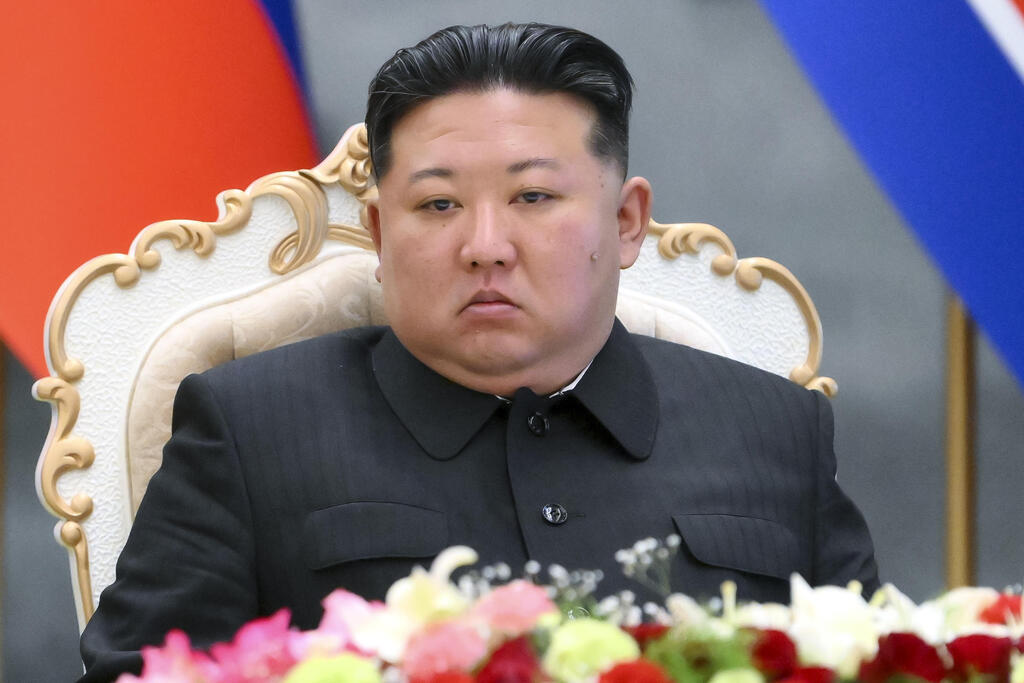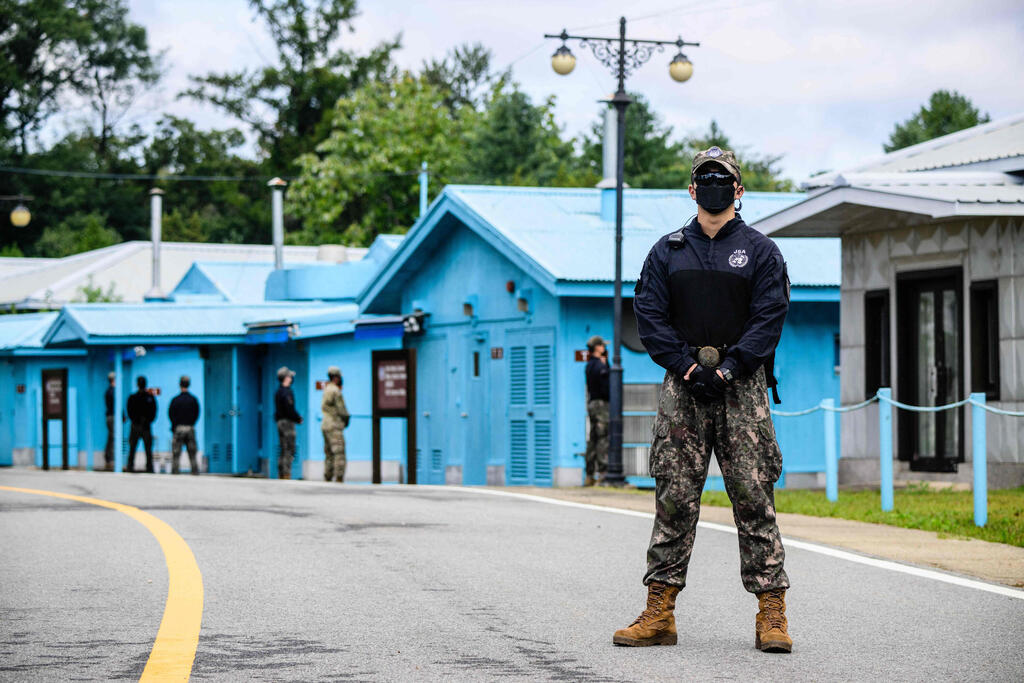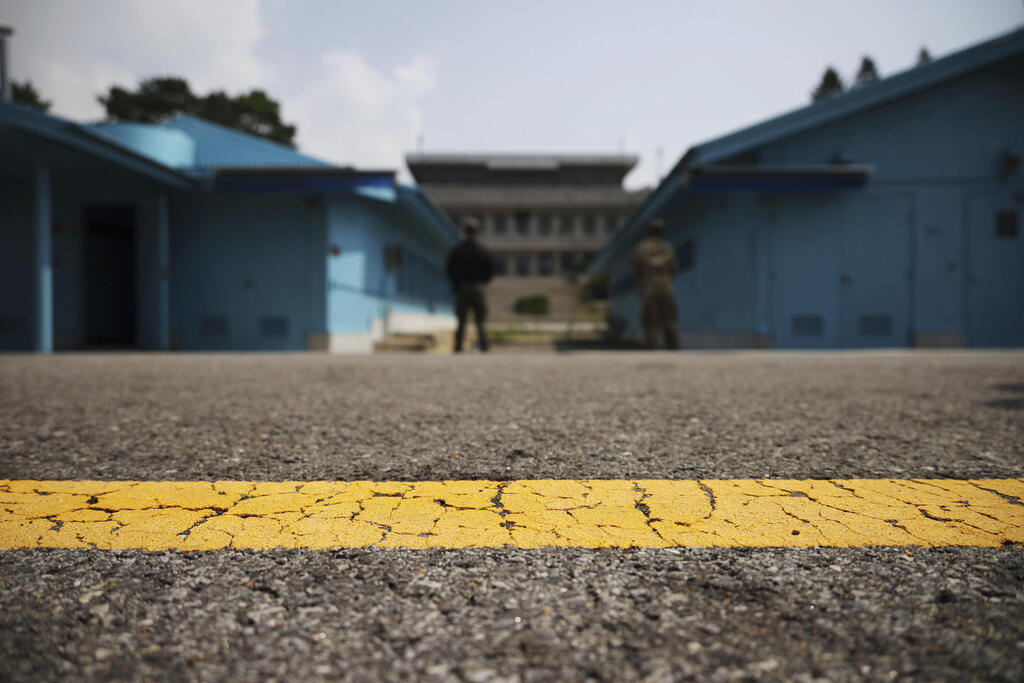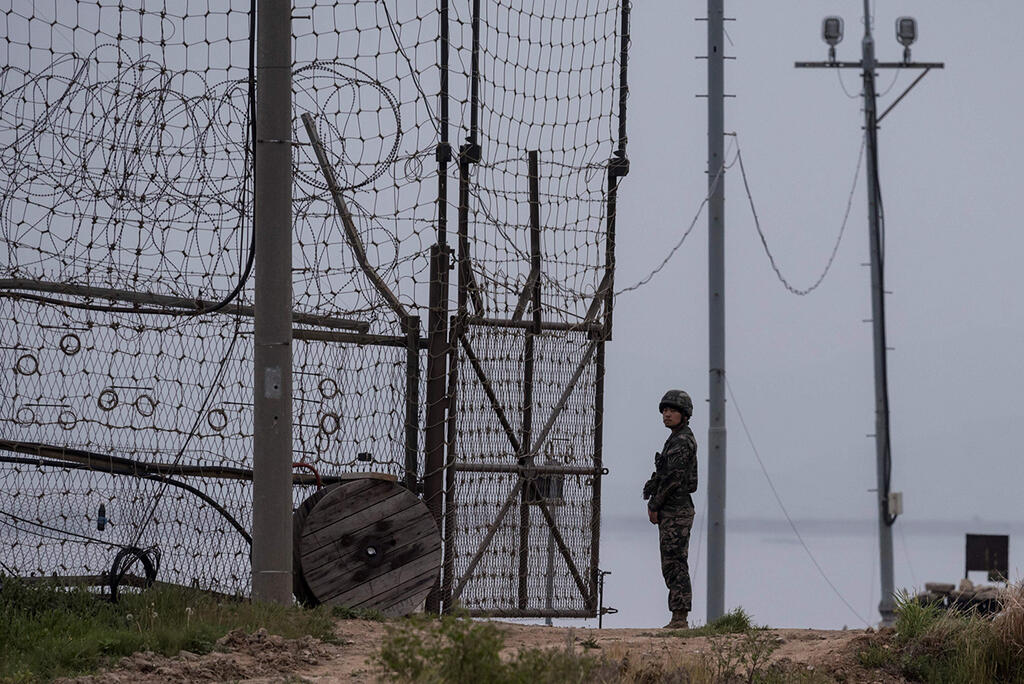Getting your Trinity Audio player ready...
North Korea officially began demolition operations, blowing up the roads that connect South and North Korea's Gyeongui Line and Donghae Line, specifically targeting sections previously used for cross-border exchanges. The explosions were confirmed by the South Korean Joint Chiefs of Staff, who reported that the North Korean military had set off detonations in the east and west of the Korean Peninsula.
The demolition of the roads occurred after North and South Korea exchanged threats amidst rising animosities over North Korea's accusation that South Korea flew drones over its capital. North Korea described the alleged drone flights as "the enemy's serious provocation." In response, the South Korean military immediately conducted firing exercises south of the Military Demarcation Line and warned of stern punishment if the safety of its citizens is threatened.
4 View gallery


North Korean leader Kim Jong Un
(Photo: Kristina Kormilitsyna, Sputnik, Kremlin Pool Photo via AP)
Following Kim Jong Un's order, North Korea detonated bombs north of its eastern and western borders. The explosions are seen as a significant shift in policy and a display of North Korea's growing loathing of South Korea's conservative government. The destruction of the roads illustrates Kim Jong Un's hardening policy towards the South.
The South Korean government issued a statement strongly condemning North Korea's actions, stating that they are "extremely abnormal" and that North Korea must bear all responsibility for the deterioration of the situation. The South Korean Ministry of Unification emphasized that "the Gyeongui Line and Donghae Line railways and roads are products symbolizing inter-Korean cooperation after the inter-Korean summit of the leaders of South and North Korea."
In response to the explosions caused by North Korea, South Korea's military fired warning shots within its border, confirming that the shots didn't cause any damage on Seoul's side of the border. The South Korean Joint Chiefs of Staff stated that they are "strengthening their surveillance and alert posture" in response to North Korea's movements.
The Gyeongui Line connects South Korea's western border city of Paju to North Korea's Kaesong, 26 kilometers away, and is a symbol of inter-Korean cooperation and peace. It starts from Seoul Station, north through Goyang City and Paju City in Gyeonggi Province, enters North Korea, passes through Kaesong and Pyongyang, and reaches Sinuiju. The Donghae Line is a railway from Yangyang County in Gangwon Province, South Korea, to Wonsan City in Gangwon Province, North Korea. It was opened in 1937 and is 180 kilometers long, passing through Mount Kumgang.
Since the division of North and South Korea, the Gyeongui Line and Donghae Line railroads have been declared interrupted on both sides. The reopening of roads connecting the two ends of North and South Korea has been regarded as a symbol of reconciliation and cooperation between the two Koreas. However, now North Korea has unilaterally exploded the Gyeongui Line and Donghae Line railroads, which are regarded as symbols of peace, following its announcement to cut transport routes toward South Korea.
The South Korean Ministry of Unification stated: "They were constructed at North Korea's request, financed through loans, at a cost of 132.9 million dollars. We reiterate that North Korea still has the obligation to repay the debt." The ministry added: "Regarding North Korea showing such regressive actions, we are deeply saddened. The responsibility for blowing up the railways and roads connecting South and North Korea rests entirely with North Korea."
Observers say it is still unlikely for Kim Jong Un to launch preemptive, large-scale attacks on South Korea, because that would certainly invite massive retaliation by the more superior South Korea-U.S. forces, which would pose a threat to his survival. Analysts say the incidents reflect an escalation of tensions on the peninsula but do not signal the imminent start of a military conflict.
Yang Moo-jin, president of the University of North Korean Studies in Seoul, stated that North Korea's actions are a practical military measure related to the hostile dual-state system it has frequently mentioned and may indicate plans to erect more physical barriers along the border. He also noted that the road detonations could be "preparatory work for its construction of those walls."
The recent destruction of roads aligns with Kim Jong Un's earlier edict to forgo the aim of peaceful unification with South Korea, marking a significant shift in policy. This action signifies a complete rupture of North and South Korean relations and declares South Korea the "principal enemy."
Tensions on the Korean Peninsula have sharply increased in recent years, with North Korea performing a series of provocative missile tests, which it describes as a warning in response to the actions of Seoul, and South Korea and the United States expanding their military drills. The South Korean military is bolstering its readiness and surveillance posture in coordination with the United States while closely monitoring North Korean military activities.
North Korea has accused South Korea of infiltrating drones to drop a "huge number" of anti-regime propaganda leaflets over Pyongyang three times this month, describing it as a political and military provocation that could lead to armed conflict. North Korea threatened to respond with force if South Korean drones drop propaganda leaflets again, warning it would consider it "a declaration of war."
During a meeting with his top military and security officials, North Korean leader Kim Jong Un described the alleged South Korean drone flights as the "enemy's serious provocation" and laid out unspecified tasks related to "immediate military action" and the operation of his "war deterrent" for defending North Korea's sovereignty.
South Korea has refused to confirm whether it sent drones but warned that North Korea would face the end of its regime if the safety of South Korean citizens is threatened. The South Korean military is strengthening monitoring and maintaining a state of alert.
In June 2020, North Korea blew up an empty, South Korean-built liaison office just north of the border in retaliation for South Korean civilian leafleting campaigns. North Korea has a history of staging choreographed events to destroy facilities on its soil as a political message. The destruction of roads connecting the two Koreas is not the first time North Korea has targeted symbols of rapprochement, as it has previously destroyed infrastructure as a political signal.
Experts say Kim Jong Un likely wants to reduce South Korea's voice in the regional nuclear standoff and seek direct ties with the United States. Analysts say Kim Jong Un is also likely hoping to reduce South Korea's cultural influence and strengthen his rule at home.
South Korean officials said North Korea had already been adding anti-tank barriers and laying mines along the border since earlier this year. North Korea has also planted mines, removed lamps along its sections of the inter-Korean roads, and taken out ties on the northern side of the railways.
The operations of these routes were later suspended as the Koreas wrangled over North Korea's nuclear program and other issues, with recent announcements from Pyongyang indicating further cuts and fortifications. Tuesday's detonations appear largely symbolic after Kim Jong Un removed the concept of peaceful reunification with the South from North Korea's policy stance.
Kim Jong Un's regime has stepped up its defiance of the United States and its allies in recent years by ramping up its nuclear production efforts and strengthening ties with Russia. Washington has accused North Korea of supplying ammunition and missiles to Moscow for its war in Ukraine, a charge that Pyongyang denies.
The South Korean Ministry of Unification reminded: "We reiterate that North Korea still has the obligation to repay the debt."
This article was written in collaboration with Generative AI news company Alchemiq
Sources: CBS News, El HuffPost, Le Monde.fr, ETtoday新聞雲, TIME, Home, https://www.bangkokpost.com, Outlook India, TASS, Mirror
Get the Ynetnews app on your smartphone:




